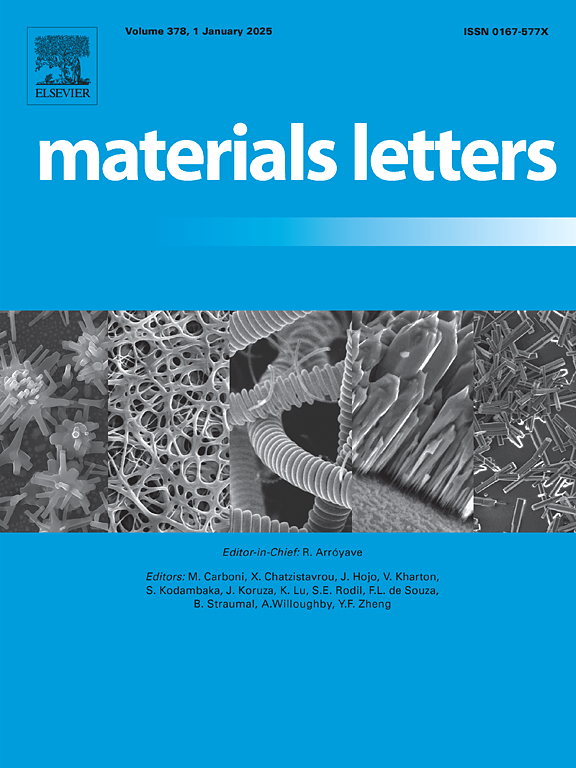Study on hydrogen desorption behavior under elastic stress using cryogenic thermal desorption spectroscopy
IF 2.7
4区 材料科学
Q3 MATERIALS SCIENCE, MULTIDISCIPLINARY
引用次数: 0
Abstract
Hydrogen-defect interactions behavior is critical to solving the hydrogen embrittlement (HE) problem. Exploring the hydrogen desorption behavior under elastic stress is essential for gaining insights into the HE mechanism. The thermal desorption spectroscopy (TDS) technology is efficient for investigating the hydrogen diffusion and trapping behaviors. In this study, we introduced a cryogenic holder to minimize hydrogen diffusion during the vacuum process and employed cryogenic TDS to examine the effect of elastic stress on hydrogen desorption behavior in martensite and martensite-ferrite. Our findings reveal that elastic stress shifts the desorption peak in dual-phase steel, but cannot alter the trap activation energy, meanwhile, the desorption peak in martensite remains unchanged and the activation energy decreases. This indicates that different internal stress in the microstructure has different effects on hydrogen diffusion and trapping ability, shedding new light on the behavior of hydrogen in materials subjected to stress.
低温热解吸光谱法研究弹性应力下氢的解吸行为
氢缺陷相互作用行为是解决氢脆问题的关键。探索弹性应力下的氢解吸行为对于深入了解HE机理至关重要。热解吸光谱(TDS)技术是研究氢扩散和俘获行为的有效方法。在这项研究中,我们引入了一个低温保温器来减少真空过程中氢的扩散,并采用低温TDS来研究弹性应力对马氏体和马氏体-铁素体中氢解吸行为的影响。结果表明,弹性应力改变了双相钢的脱附峰,但不能改变陷阱的活化能,同时马氏体的脱附峰保持不变,但活化能降低。这表明微观结构中不同的内应力对氢的扩散和捕获能力有不同的影响,为研究应力作用下氢在材料中的行为提供了新的思路。
本文章由计算机程序翻译,如有差异,请以英文原文为准。
求助全文
约1分钟内获得全文
求助全文
来源期刊

Materials Letters
工程技术-材料科学:综合
CiteScore
5.60
自引率
3.30%
发文量
1948
审稿时长
50 days
期刊介绍:
Materials Letters has an open access mirror journal Materials Letters: X, sharing the same aims and scope, editorial team, submission system and rigorous peer review.
Materials Letters is dedicated to publishing novel, cutting edge reports of broad interest to the materials community. The journal provides a forum for materials scientists and engineers, physicists, and chemists to rapidly communicate on the most important topics in the field of materials.
Contributions include, but are not limited to, a variety of topics such as:
• Materials - Metals and alloys, amorphous solids, ceramics, composites, polymers, semiconductors
• Applications - Structural, opto-electronic, magnetic, medical, MEMS, sensors, smart
• Characterization - Analytical, microscopy, scanning probes, nanoscopic, optical, electrical, magnetic, acoustic, spectroscopic, diffraction
• Novel Materials - Micro and nanostructures (nanowires, nanotubes, nanoparticles), nanocomposites, thin films, superlattices, quantum dots.
• Processing - Crystal growth, thin film processing, sol-gel processing, mechanical processing, assembly, nanocrystalline processing.
• Properties - Mechanical, magnetic, optical, electrical, ferroelectric, thermal, interfacial, transport, thermodynamic
• Synthesis - Quenching, solid state, solidification, solution synthesis, vapor deposition, high pressure, explosive
 求助内容:
求助内容: 应助结果提醒方式:
应助结果提醒方式:


